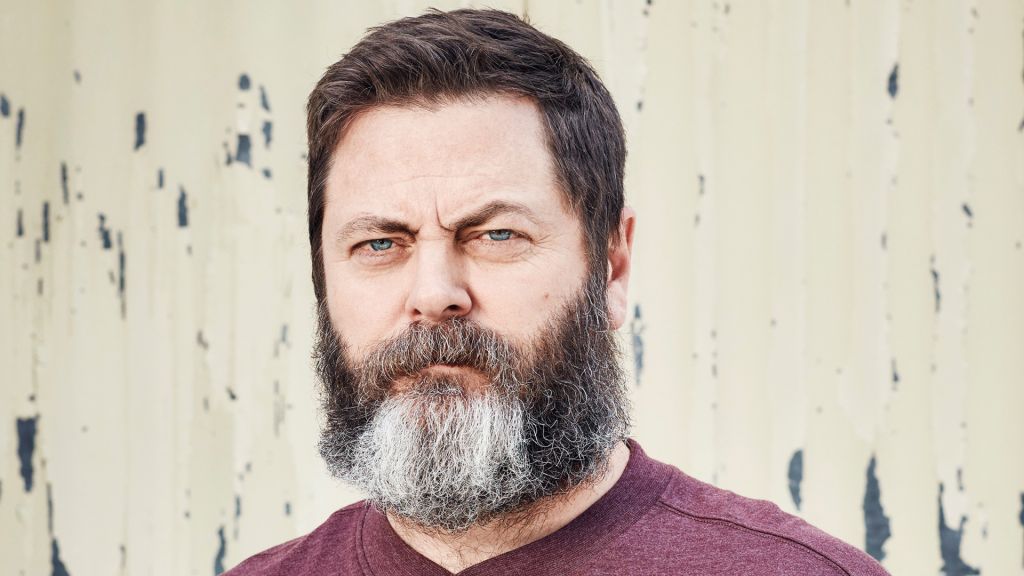Look & See: Wendell Berry’s Kentucky co-producer Nick Offerman, an actor of many an indie film and of course on TV’s Parks & Recreation, Fargo, and author of Paddle Your Own Canoe: One Man’s Fundamentals for Delicious Living, as well as gifted woodworker and man of many other talents, stopped by to answer five questions for us about his involvement with the film and his connection to (and love of) writer Wendell Berry.
1. How did you get involved with this documentary, Look & See: Wendell Berry’s Kentucky?
I was introduced to the filmmaker Laura Dunn by our mutual friend Holly Sabiston, a talented Austin portraitist. As I was already a fan of Laura’s first film, The Unforeseen, I was very excited to be introduced to her, especially because she was making a film about my very favorite subject, Wendell Berry.
I told her I would come and carry cable or run for coffee but she instead asked me to help promote the film and raise some budget.
2. What is special to you about Wendell Berry and do you have a favorite piece?
I was raised in the sort of rural community and family that populates Mr. Berry’s fiction. His talent for representing the human condition with pathos, humor, and respect in the realm of small agricultural communities working together with each other and also with the elements and natural resources in which they live elicits a set of values that captivates my attention.
Among his prolific body of work you will find masterful poetry, deeply incisive and rousing essays, and a cohesive pastiche of fiction comprised of some eight novels and fifty-some short stories focused upon the citizens in what he calls the membership of fictional Port William, Kentucky. I am hard pressed to choose any favorites, as every ingredient is required to complete his considerable meal, but I recommend the novels The Memory of Old Jack and Jayber Crow, and the short stories Fidelity, The Lost Bet, and Making It Home.
3. What do you think we’ve lost with the decrease in family farms?
Well, that’s a very large question that I am not terribly qualified to answer, which is why I am such a fan of institutions like The Land Institute in Kansas and The Berry Center in Kentucky, headed by the daughter of Wendell and Tanya, the charismatic Mary Berry. I also learn a lot from the writing of Michael Pollan and Bill McKibben and their ilk. Wendell has some very well thought out essays on the topic, like “The Bad Modern History of Farming” in The Progressive from June of 2017. “Through the eyes and artistry of Wendell Berry, the audience will have plenty of food for thought around Wendell’s adage: ‘It all turns on affection.'”
“What we have lost” in a local sense, is simple, human respect for our citizens who live out in the country and husband our nation’s acreage. The voracious machinery and chemical dependency of industrial agriculture not only destroys the health of our soils and our bodies, but it has proven fatal to America’s small farmers as well.
4. What would Ron Swanson think of the way farming has gone in America?
You would have to ask the writers of Ron Swanson.
5. What would you like audiences to take away from Look & See?
This film is a beautiful and thought-provoking offering in a long, ongoing conversation about how we earthlings are all in complicit in doing ourselves, our progeny and our home places a disservice by complacently succumbing to rampant consumerism. By offering our devotion in the wrong direction, or by failing to practice devotion in the first place. Through the eyes and artistry of Wendell Berry, the audience will have plenty of food for thought around Wendell’s adage: “It all turns on affection.”
More:
